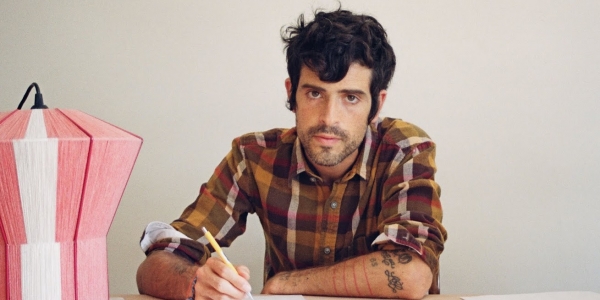“We teach creative people about business and business people about creativity in ways that make sense,” she says. “No one makes art to make money but you know that you have to make a living if you’re going to continue doing it. I just got sick of people dropping out and being all flustered about it so I thought, ‘For fuck’s sake let’s have a conversation!’”
Indeed, conversation is the key. A major cause of the financial struggles faced by many artists is the lack of easily accessible, concrete business advice.
“I can’t make the work that one of my friends might make,” Bowditch says, “and I would never try to, but we can share the business knowledge so that we can all understand how it all works. It’s tough enough running any small business, let alone a creative business in a world and a country where you’re often having to continuously remind people of the value of this invisible thing that infiltrates our lives, which is art and creativity.”
The opaque quality of business aspects can morph the music industry into a competitive playing field. For instance, when someone discovers a successful, lucrative strategy they’re likely to guard it tightly for fear the good luck will come undone.
“There is room for everyone, there’s no competition,” Bowditch states. “There might be certain things that are secret to you and you hold them dear but in terms of general business information, it’s fucking basic. You can learn that stuff.”
So, with the heavy workload imposed by Big Hearted Business (in particular, preparing for the second annual BHB ‘un-conference’ this May), could Clare have found time to write new music for a follow up to 2012’s The Winter I Chose Happiness?
“I’m one of those musicians who’s always writing,” she says. “I record my sketches. With every album I get to a point where there’s about 50 unfinished songs sitting on the [iPhone] and I start going, ‘I really need to finish these songs,’ because there’s obviously something new to say.”
Similar to the albums that preceded it, The Winter I Chose Happiness has a strong thematic basis. Stepping away from the topics of lust, grief and addiction explored on previous albums, this record saw Bowditch blatantly advocate living a happy life.
“It was meant to be a provocative theme actually,” she says. “What is the least likely topic an indie musician will tackle? For me the most frightening topic was the concept of happiness. And, in pursuing happiness do we lose our artistic edge?”
In Bowditch’s case, pursuing happiness didn’t mean indulging in hedonistic depravity or assuming an intellectually limiting naivety. Rather, the record reflects that to access true and enduring happiness, one is required to interrogate what actually constitutes happiness for them.
“I don’t know why, but so many creative people have this story that we have to be miserable in order to be productive creatively – that our misery is the source of our creativity. I wanted to blow it the fuck out of the water. I just thought, ‘I can’t live with that story anymore, I’m a mother of three children in a world that really needs good stories and do I have anything worth saying on this topic?’”
It’s now been ten years since the release of Bowditch’s debut solo record, Autumn Bone, and since that time her songwriting focus has undergone many transformations. Yet, the essential inclination to transfer her thoughts and feelings into song has become no less urgent.
“The motivation was always just about playing and enjoying and I think it’s become more intensely about truth as I’ve got older,” she muses. “As you become an adult there’s so many things that claw on your time and on your mind, yet there’s still this pure access to freedom when a song is being written. For me the motivation these days, it’s more about survival. Survival meaning: enjoying your life.”
What’s more, after all this time writing music the creative process retains inviting allure. “I think art and childbirth are two of the few remaining mysteries in the world,” Bowditch says. “Art, childbirth and where the fuck did that plane go? They’re the mysteries that we’re dealing with at the moment in the world.”
So, what comes next then? Well, this weekend Bowditch and her 11-piece band headline the Twilight Sounds concert that’s taking place next to the Yarra River in Heidelberg. Getting back on stage is by no means an inconvenience.
“All that bureaucracy, all that 24 hours of stress of getting there and getting through the accreditation is all worth it because you get this pure moment onstage, which is one of the reasons I’m looking forward to next week. That’s why you do it, that’s the moment of glory. It’s like parenthood: there’s so much bullshit, so many nappies to change and yet you get this moment with this kid and it’s heaven. It’s the same with music.”
BY AUGUSTUS WELBY

